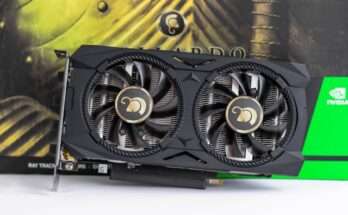Best Laptops for Information Technology Students, Choosing the right laptop can be one of the most important decisions you make as an information technology student. With so many brands, sizes, and configurations out there, it can seem overwhelming to choose the best laptop for you. However, by knowing exactly what you’ll be using your laptop for and keeping your budget in mind, you can make an informed decision that will bring value to your learning experience and last you throughout your career in IT. This guide will help you find the best laptop option to meet your needs.
Apple Macbook pro M1

The Apple Macbook Pro is a great laptop for students. The MacBook pro has many features that make it a good choice for someone who is always on the go and needs to do their work in more than one place at a time, such as an airport or coffee shop. It is also very durable and extremely powerful with its Intel i5 processor that can handle even the most demanding of tasks. This laptop also has a lot of memory to store all of your files, photos, videos and more. It has an HD camera that captures video in high resolution so you can document your life with ease. The Apple Macbook pro M1 is not cheap, but it’s worth every penny for the quality you get out of it.
Dell Xps 13 9310
 If you are looking for a laptop that is affordable, lightweight and offers a long battery life, then Dell Xps 13 9310 is the perfect laptop for you. Dell Xps 13 9310 is also durable enough to handle the rigors of student life as well as meeting your needs at the same time. The touchpad is large and responsive which makes it easy to use this laptop. Dell Xps 13 9310 comes with an Intel Core i7 processor and 8GB RAM which provides you with plenty of power to do your work without any issues. In addition, Dell Xps 13 9310 has a backlit keyboard which makes typing easy in low light environments or dimly lit rooms.
If you are looking for a laptop that is affordable, lightweight and offers a long battery life, then Dell Xps 13 9310 is the perfect laptop for you. Dell Xps 13 9310 is also durable enough to handle the rigors of student life as well as meeting your needs at the same time. The touchpad is large and responsive which makes it easy to use this laptop. Dell Xps 13 9310 comes with an Intel Core i7 processor and 8GB RAM which provides you with plenty of power to do your work without any issues. In addition, Dell Xps 13 9310 has a backlit keyboard which makes typing easy in low light environments or dimly lit rooms.
Lenovo Thinkpad x1 carbon 9
 Specification of Lenovo Thinkpad x1 carbon 9:
Specification of Lenovo Thinkpad x1 carbon 9:
This laptop is a great option for the price. It has a whole lot of power with its eighth-generation Intel core processor and I think this model is at the top of the line in terms of performance-to-price ratio. The battery will last up to 16 hours which means you can take it with you wherever you need to go, even in coffee shops. Plus, because it is so thin, lightweight, and compactable, it makes sense as an all-purpose laptop that can travel well. One thing I really like about this laptop is that you can upgrade or change things yourself instead of going through Lenovo support (though they are good too!). You can switch up RAM or hard drive sizes without any issues.
Apple Macbook air m1

Apple’s Macbook Air M1 is a great laptop for any student. It has a sleek and modern design that is sure to turn heads in class. It features an Intel core i5 processor and 8 GB of RAM, which are more than enough to handle any task you throw at it. The Macbook Air M1 also has an impressive battery life of 12 hours, so you can be confident that your laptop will last through the day without needing to charge it. Plus, Apple offers its own software suite called iWork which includes word processing and spreadsheet programs that are easy to use and fully integrated with all Apple devices.
Hp envy x360 15t
 When it comes to computing, many students are concerned with durability, portability, and performance. The HP ENVY x360 15t is the perfect choice because it has all three of these qualities. This laptop’s 360-degree hinge allows you to move the screen to any position that is most comfortable. It is also thin and lightweight so you won’t have any trouble carrying it around campus with you wherever you go. For this reason, some people might argue that this is not the best laptop for IT students because they may be more interested in something durable that can withstand being carried around all day. However, this laptop’s durability is unparalleled because of its dual-molded reinforced glass over the touchpad and display which protects from scratches and damage from falls.
When it comes to computing, many students are concerned with durability, portability, and performance. The HP ENVY x360 15t is the perfect choice because it has all three of these qualities. This laptop’s 360-degree hinge allows you to move the screen to any position that is most comfortable. It is also thin and lightweight so you won’t have any trouble carrying it around campus with you wherever you go. For this reason, some people might argue that this is not the best laptop for IT students because they may be more interested in something durable that can withstand being carried around all day. However, this laptop’s durability is unparalleled because of its dual-molded reinforced glass over the touchpad and display which protects from scratches and damage from falls.
Razer Blade Stealth 13
 If you are a student looking for an all-around great laptop that can handle anything, the Razer Blade Stealth 13 is a great choice. This laptop is lightweight and has a sharp 4K display that makes it easy to view any content. It also features a Core i7 processor and 16 GB of RAM which means that it is powerful enough to run even the most demanding programs with ease. The Razer Blade Stealth 13 starts at $1,000 for the version without touch capabilities or $1,300 for the touch-enabled version. That’s not bad considering what this computer offers, but if you want something cheaper then you may want to look elsewhere. For those on a budget, Acer Aspire E 15 might be your best option. With an Intel Pentium N4200 quad-core CPU, 8GB of memory, and 1TB hard drive for under $400, this computer will get the job done well enough for students who don’t need much power in their laptops. The Aspire E 15 isn’t nearly as powerful as more expensive laptops but it is still more than capable of handling multitasking and web browsing just fine. Plus its battery life will last around 7 hours before needing another charge so its pretty good on battery life as well!
If you are a student looking for an all-around great laptop that can handle anything, the Razer Blade Stealth 13 is a great choice. This laptop is lightweight and has a sharp 4K display that makes it easy to view any content. It also features a Core i7 processor and 16 GB of RAM which means that it is powerful enough to run even the most demanding programs with ease. The Razer Blade Stealth 13 starts at $1,000 for the version without touch capabilities or $1,300 for the touch-enabled version. That’s not bad considering what this computer offers, but if you want something cheaper then you may want to look elsewhere. For those on a budget, Acer Aspire E 15 might be your best option. With an Intel Pentium N4200 quad-core CPU, 8GB of memory, and 1TB hard drive for under $400, this computer will get the job done well enough for students who don’t need much power in their laptops. The Aspire E 15 isn’t nearly as powerful as more expensive laptops but it is still more than capable of handling multitasking and web browsing just fine. Plus its battery life will last around 7 hours before needing another charge so its pretty good on battery life as well!
The 5 Best Laptops for Information Technology Students
- Budget for Laptop
- Size/weight
- Build quality
- Processor
- Keyboard and display

When you’re in college, the last thing you want to worry about is whether or not your laptop can handle your workload. From school assignments to extracurricular activities like clubs and sports, it’s important to know that your laptop has everything you need, with enough storage space and processor speed to keep up with the demands of being an information technology student. With that in mind, here are the five best laptops for IT students
1) Budget for Laptop
Purchasing a laptop as a student is extremely important to stay on top of your coursework, but unfortunately, it can also be one of your biggest expenses throughout your entire academic career. That’s why we’ve put together our list of five of the best laptops for students who are pursuing an IT degree. Each one comes with just about everything you’ll need to complete homework assignments and study effectively both in and out of class, and you won’t break your bank account getting them either!
If you’re a student in information technology, you need a laptop that can handle everything your coursework throws at it. But with so many options on the market, it can be tough to know where to start your search. To help narrow down your choices, we’ve put together this list of five of the best laptops for students who are pursuing an IT degree. Toshiba Satellite C55-C5241
This laptop has been designed specifically for students and is easy to carry around campus thanks to its lightweight and compact design. It comes with all the basics like Windows 10, 8GB RAM, and a 500GB hard drive; but also offers extras like a full keyboard and number pad, Bluetooth connectivity, and a 15.6 touchscreen display.
Apple MacBook Pro MLH32LL/A
If you prefer Apple’s operating system over Windows 10 then this MacBook Pro might be right up your alley. Equipped with the latest Intel Core i7 processor, 16GB of RAM, 512GB SSD storage and Intel Iris Plus Graphics 640 integrated graphics card, this laptop will do anything you ask of it. You’ll find yourself paying a little more for this model than other laptops on our list; but if budget isn’t an issue or you want one of the most powerful computers available today, it may be worth checking out. ASUS VivoBook F510UA
This affordable option includes features like an Intel Core i5 processor, 8 GB DDR4 memory (expandable up to 32 GB), and a 1TB HDD giving you plenty of space for your files while still being able to run multiple programs without experiencing any lag or slowdowns. Asus promises a battery life of up to 15 hours, which should get you through your busy day as well as any late-night studying sessions. Acer Aspire E15\
Another reasonably priced choice from Acer, this laptop offers just about everything the average college student needs. The E15 offers 7th generation dual-core Intel processors and four different configurations: 8GB/1TB HDD, 4GB/1TB HDD, 4GB/128SSD + 1TB HDD and 6GB/128SSD + 1TB HDD. Whichever configuration you choose will provide great performance as well as increased energy efficiency. Plus with each purchase, you’ll receive an additional 3 years of warranty coverage!
2) Size/weight
One of the most important things to consider when purchasing a laptop is size. You want to make sure the laptop is not too big or too small. If it is too big, it will be difficult to carry around with you. If it is too small, it will be difficult to see the screen and type on the keyboard. The ideal size for a laptop is between 13 and 15 inches. If you are considering buying a 17-inch laptop, we recommend using it at home as opposed to carrying it around campus. They can take up a lot of space in your backpack. If you are going to purchase a 17-inch laptop, then go ahead and purchase an 18-inch sleeve or bag just so that it can fit comfortably in your backpack.
In general, you should always try to use the laptop before you buy it if possible. Buying online can be more expensive than buying from a store because they usually don’t offer refunds or exchanges. But if you are comfortable enough to order something online, make sure to compare prices with other websites and stores to find the best deal. Buying refurbished laptops may also save you money but keep in mind that these products typically come without a warranty. Make sure to do some research beforehand to determine if refurbished computers are worth the risk. Another option is buying used laptops through eBay or Amazon Marketplace. There are many reputable sellers who have high ratings. Make sure that any problems you have after purchasing a used laptop will be covered by the seller’s return policy before making a final decision.
3) Build quality
When selecting a laptop for information technology students, the most important factor to consider is build quality. Look for laptops that are made with durable materials and have solid construction. Another important factor to consider is the processor. Choose a laptop with a powerful processor that can handle all of your needs. Additionally, make sure to select a laptop with plenty of storage space and memory. Finally, be sure to select a laptop with a high-quality display. The higher the resolution, the more vivid and clear images will appear on your screen.
In terms of features, you should also look for touchscreen capabilities, which allow you to interact directly with your device without using a mouse or keyboard. Many users prefer touchscreens because they’re intuitive and easy to use. And if you’re worried about having fingerprints on your computer’s screen, some computers offer anti-glare screens that keep smudges at bay while still allowing clear viewing. Touchscreen devices may also come equipped with cameras, depending on what kind of software you plan to use in order to complete assignments. The traditional way – Third Paragraph: In addition to touchscreens, many laptops today come equipped with keyboards featuring backlit keys—meaning they light up in dark settings—to help prevent eye strain while typing.
4) Processor
A laptop’s processor is its brain. A fast processor can help you run multiple programs at the same time without slowing down your computer. When shopping for a laptop for information technology students, look for a processor that is fast and efficient. The Intel Core i5 and i7 processors are some of the best on the market. If you’re on a budget, an AMD A6 or A8 processor will also do the trick. Just make sure to consider how much power you’ll need from your laptop before buying one with less processing power. Also, try to stick with the current generation of processors so you can take advantage of the newest technology.
Keep in mind that while a fast processor is important, a powerful graphics card will be even more useful if you plan to do a lot of gaming or video editing. Many high-end laptops have both an Intel Core i5 or i7 processor and an Nvidia GeForce GTX graphics card. Be sure to consider what programs you’ll be using your laptop for so you can choose one with enough power for your needs. Additionally, pay attention to battery life when choosing a laptop. A laptop with an eight-hour battery life might not work well for someone who doesn’t always have access to an outlet, but it could be perfect for someone who takes their laptop home each night.
5) Keyboard and display
When it comes to laptops, there are a few key features that are important for information technology students. A backlit keyboard is a must for working in low-light conditions, and a matte display will help reduce glare. A fingerprint reader can also be helpful for quickly logging into your device. As for the mouse, many IT students prefer a trackpad over an external mouse. Your laptop should also have at least 8GB of RAM since it’s important to have enough space to run multiple programs at once.
A great display is also important. If you can, try to get a high-resolution display with a lot of pixels per inch (PPI). High resolution will make text and images sharper and easier to read or view. A higher PPI, meanwhile, makes things like pictures and videos appear crisper. Most IT students do their work in front of a computer screen all day, so it’s important that your laptop’s display doesn’t cause eye strain after long periods of use.
One feature worth considering is touch screen support. If you intend to draw on your laptop using a stylus pen or similar input device, having touch support built into your laptop can be useful because it means you won’t need an external drawing surface.




